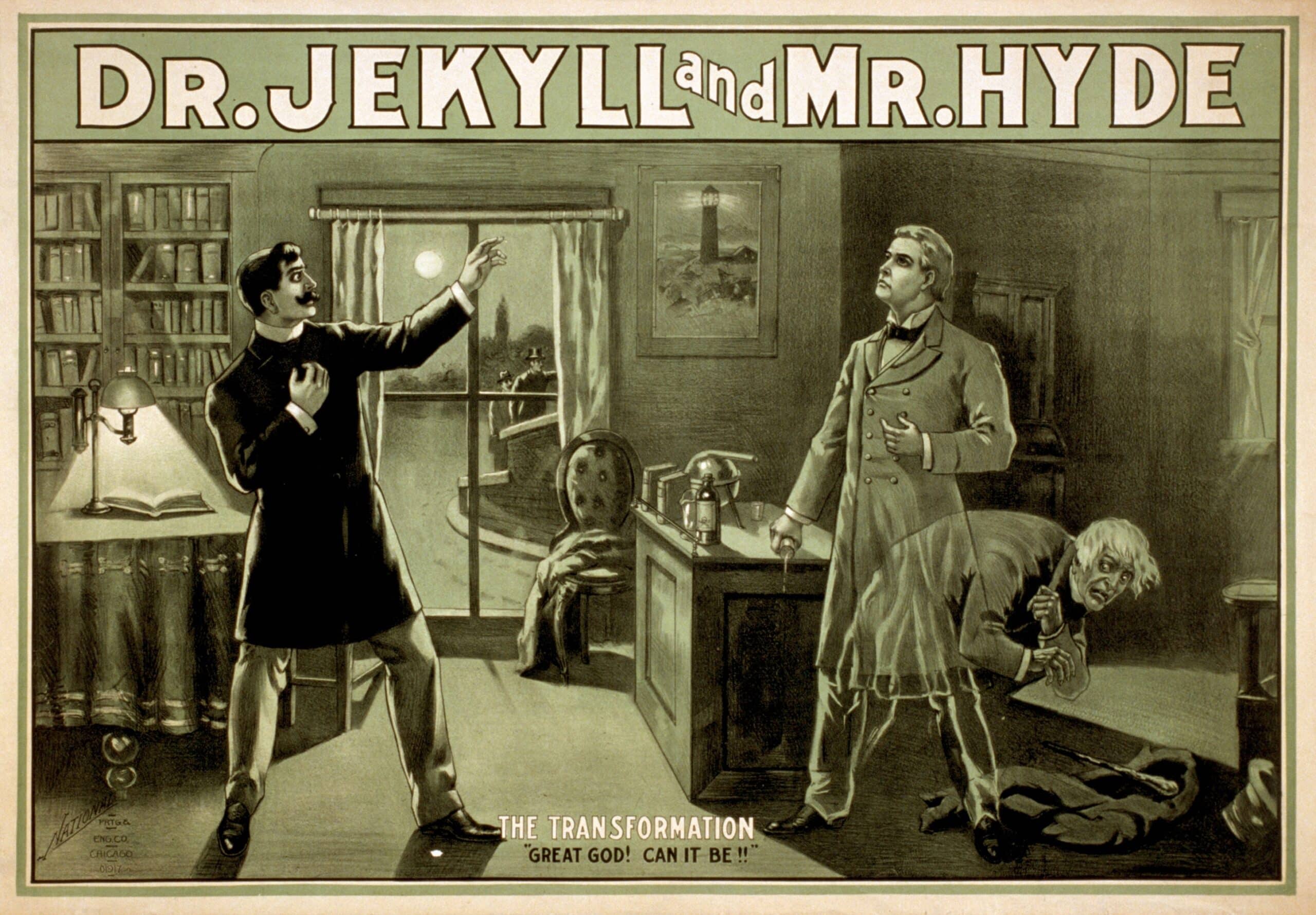Exhilarating horror in Strange Case of Dr. Jekyll and Mr. Hyde
Why do we enjoy reading horror novels? In his essay, “Why We Crave Horror Movies,” Stephen King poses a similar question. He explains that, although we do not often seek horror, we watch scary movies to ride the roller coaster of fear and show ourselves that we are not afraid. King also states that we are all insane to some degree. He says, “The potential lyncher is in all of us […], and every now and then, he has to be let loose to scream and roll around in the grass.”
What inspires people to write horror novels? Like the birth of Mary Shelley‘s monster, Frankenstein, Robert Louis Stevenson‘s novel, Strange Case of Dr. Jekyll and Mr. Hyde, was based on a dream. Focusing on Mr. Hyde—a character that embodies two people in one—the novel’s chilling horror becomes apparent though Mr. Hyde’s appearance, his eerie crimes, and his animalistic behaviour. Published in 1886, Stevenson’s writing is based on his fascination with the “divided-self”—a theme that references the people of Victorian England, a time of much evolution and self-discovery. In Strange Case of Dr. Jekyll and Mr. Hyde, Stevenson’s mysterious tone never satisfies the reader’s curiosity—until the end.
Stevenson’s use of doubling characterizes the novel’s detective fiction genre. According to Reference, “doubling in literature occurs when a pair of characters can be described as two sides of the same coin.” Stevenson provides readers with duplicate accounts of the same case, telling the story through three perspectives. Although he writes in the third person, most events follow Mr. Utterson—an admirable lawyer who’s determined to uncover the truths behind the one-man-double, Dr. Jekyll and Mr. Hyde. Through somber conversations and depictions of rainy London streets, Stevenson masterfully sets the gothic atmosphere with evil forebodings. While reading, I continually felt the anticipation of something wicked.
Dr. Jekyll’s evil identity, Mr. Hyde, symbolizes sin, secret vices, and haunting nightmares. Stevenson’s writing suggests that every man has the capacity for evil, but not every man is haunted by his sins outside of himself. Through scenes that depict murder, Stevenson builds on the horrors associated with Mr. Hyde. He emphasizes that, despite the goodness within Dr. Jekyll, Mr. Hyde is always lurking.
In today’s society, it often seems like we only accept our positive displays of emotions—feelings such as love, loyalty, and kindness. But our ”anticivilization emotions”—as King puts it—don’t just disappear. We try to repress them, but they “demand periodic exercise.” Horror films and novels, like Stevenson’s Strange Case of Dr. Jekyll and Mr. Hyde, allow us to appeal to the workings of our sometimes-twisted minds.


I had someone tell me the entire summary of this novel the other day. I wish I read it myself for the twist at the end. Great review.